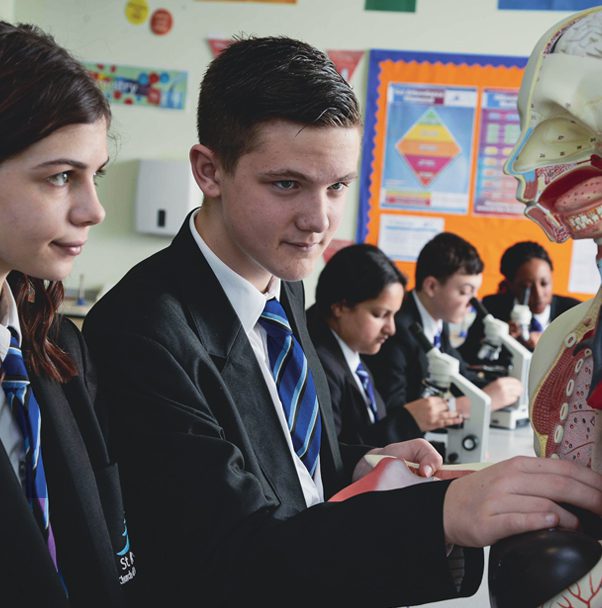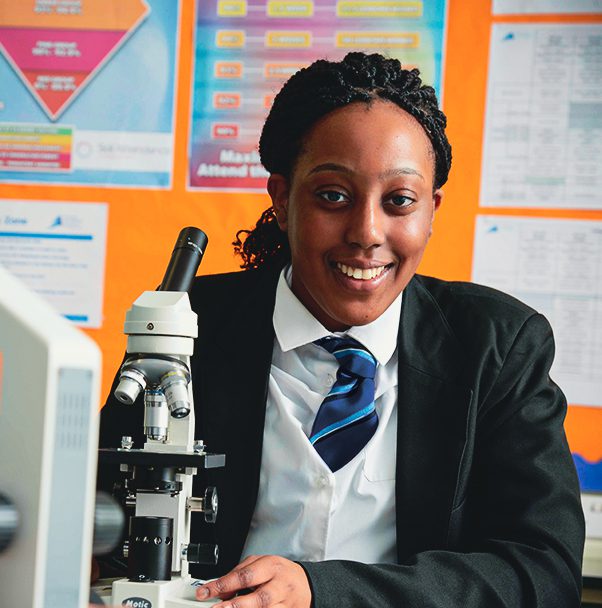Is my child too ill for School?
We know it can be tricky deciding whether or not to keep your child off school when they’re unwell – our benchmark is this: if your child is well enough to get out of bed, and can walk and talk, they are probably fit enough to put their uniform on and attend school in order to access some learning. We will endeavour to look after them in school and will make reasonable adjustments in so far as these are practical. This helps to develop resilience and a ‘can do’ attitude which will be useful for life after school and the world of work in later years. In addition, most secondary school aged children are usually responsible enough to self-medicate and can bring their own general medicine into school such as pain relief. To avoid disrupting teaching and learning this can be managed at break and lunch times. Medicine must never be shared with other students. The Pastoral and Admin Teams are available to support with the administration of medicine.
There are government guidelines for schools and nurseries about managing specific infectious diseases at GOV.UK. These say when children should be kept off school and when they shouldn’t.
The NHS has produced some guidance to help parents understand when their child can and cannot attend school which you may find useful: https://www.nhs.uk/live-well/healthybody/is-my-child-too-ill-for-school/.
Other illnesses
Follow this advice for other illnesses. In summary, your child can attend school if they have the following illnesses (there is no need for them to be absent): coughs and colds; cold sores; conjunctivitis; covid-19; hand, foot and mouth disease; head lice and nits; slapped cheek syndrome; sore throat
Coughs and colds – Your child can attend school
It’s fine to send your child to school with a minor cough or common cold. But if they have a fever, keep them off school until the fever goes.
Encourage your child to throw away any used tissues and to wash their hands regularly.
Chickenpox
If your child has chickenpox, keep them off school until all the spots have crusted over.
This is usually about 5 days after the spots first appeared.
Cold sores – your child can attend school
There’s no need to keep your child off school if they have a cold sore.
Encourage them not to touch the blister or kiss anyone while they have the cold sore, or to share things like cups and towels.
Conjunctivitis – your child can attend school
You don’t need to keep your child away from school if they have conjunctivitis.
Do get advice from your pharmacist. Encourage your child not to rub their eyes and to wash their hands regularly.
COVID 19 – your child can attend school if they are well enough
If your child has mild symptoms, such as a runny nose, sore throat, or slight cough, and feels well enough, they can go to school.
Your child should try to stay at home and avoid contact with other people if they have symptoms of COVID-19 and they either:
- have a high temperature
- do not feel well enough to go to school or do their normal activities
Hand, foot and mouth disease – your child can attend school
If your child has hand, foot and mouth disease but seems well enough to go to school, there’s no need to keep them off.
Encourage your child to throw away any used tissues straight away and to wash their hands regularly.
Ear infection
If your child has an ear infection and a high temperature or severe earache, keep them off school until they’re feeling better or their high temperature goes away.
Impetigo
If your child has impetigo, they’ll need treatment from a GP, often with antibiotics.
Keep them off school until all the sores have crusted over and healed, or for 48 hours after they start antibiotic treatment.
Encourage your child to wash their hands regularly and not to share things like towels and cups with other children at school
Head lice and nits – your child can come to school but should be treated as soon as possible
There’s no need to keep your child off school if they have head lice.
You can treat head lice and nits without seeing a GP.
Scarlet fever
If your child has scarlet fever, they’ll need treatment with antibiotics from a GP. Otherwise they’ll be infectious for 2 to 3 weeks. Your child can go back to school 24 hours after starting antibiotics.
Slapped cheek syndrome (fifth disease) – your child can attend school
You don’t need to keep your child off school if they have slapped cheek syndrome because, once the rash appears, they’re no longer infectious.
But let school know if you think your child has slapped cheek syndrome.
Ringworm
If your child has ringworm, see your pharmacist unless it’s on their scalp, in which case you should see a GP.
It’s fine for your child to go to school once they have started treatment.
Threadworm – your child can attend school
You don’t need to keep your child off school if they have threadworms.
Speak to your pharmacist, who can recommend a treatment.
Vomiting and diarrhoea
Children with diarrhoea or vomiting should stay away from school until they feel better and have not been sick or had diarrhoea for at least a days (24 hours).
Washing hands and using hand sanitiser regularly can help to reduce the spread of illness and disease. See our Winter Survival Guide for Attendance for more information, advice and guidance.

St Anne's Church of England Academy is proud to be part of the Cranmer Education Trust
Cranmer Education Trust is a company limited by guarantee and an exempt charity registered in England. Company registration number: 07687709. Registered Office: Cranmer Education Trust, c/o The Blue Coat School, Egerton Street, Oldham OL1 3SQ. The website address is www.cranmereducationtrust.com and the phone number 0161 785 5082.








